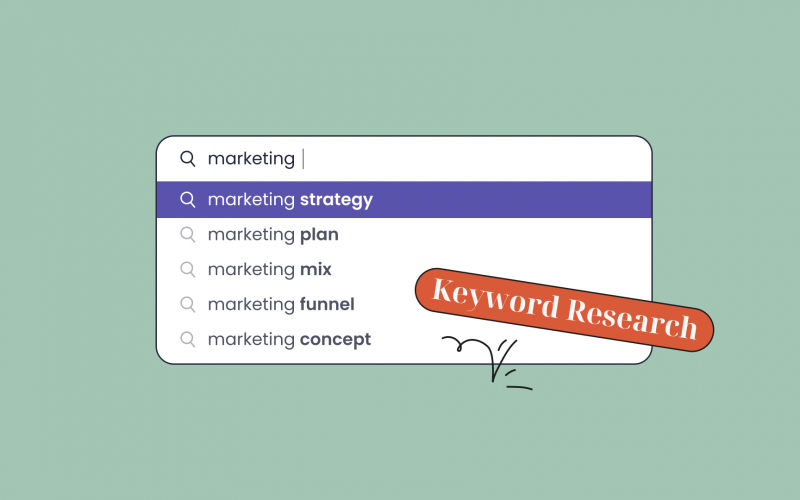A number of factors are at play when you’re trying to optimize your website for the purpose of driving traffic. Like all marketing, it’s important to have a target audience in order to get the most bang for your SEO buck, and keyword research is the foundation for this endeavour.
What is a keyword?
Keyword refers to the word and phrases that Internet users type into the search engines to retrieve information and data. But how do keywords relate to SEO? Simply put, keywords are the “clues” or “trails” that lead users to your website. Thus, ranking your website to keywords that are relevant to your business is fairly important because it allows users to find you easily.
Generally, you’ll need to insert a number of targeted keywords in your website and web content in order for you to rank them on search engines. So, keywords essentially determine what content you should create, where should it be published, how many should you produce and when should it be made.
Before creating content, it is crucial to do keyword research to understand what your potential customers and users are searching for. Keyword Research is a strategic process of discovering and analyzing the search terms aka keywords for the purpose of using the data to plan, and curate content.
More than often, brand and business owners attempt to rank keywords that they assume users would key in the search engines. However, they could overestimate the layman users as they wouldn’t search technical keywords. For example, the phrase “user experience design” or “UX design” can be too technical for certain people, so instead, they would search for “website design”.
How to do keyword research?
1. Formulate goals
To kick off your Keyword Research start by formulating goals for your business. We know this is a no-brainer, as you probably already have your business goals. However, try to conceptualize and articulate them in a detailed and systematic way so that it is clear to your team.
Some of the questions that could help are:
- What do you provide? What is your unique selling point among the others?
- Who needs your products/services? Why do they need it?
- What are their desires before purchasing?
- What are their other needs?
- What will make them buy? What gives them the confidence to purchase it?
The answers to these questions would help guide you to research relevant keywords and prevent targeting vanity keywords that are farfetched to your business. Getting a clear direction of what kind of keywords you want to target is important.
2. Make a list of topics related to your industry
Secondly, list down the general topics and services related to your industry. Imagine they are big buckets of topics and you need to label them according to your business. For instance, if you are a creative agency, your list could look like this:
- Branding Design
- Creative Big Ideas
- Packaging Design
- Website Design
3. Brainstorm keywords
Next, put yourself into the shoes of your customers and brainstorm keywords that they would most probably type into the search engines when they want to find you. This is actually an internal brainstorming session where you and your team come up with a list of keywords without going over to the search engines. The key is to identify the keywords under each bucket that you have just come up with in the first step.
As an example, if we take the “branding design” bucket and brainstorm more keywords and phrases, the list would look something like this:
- Logo design
- Brand designer
- Branding
- Brand logo design
This is where you braindump all your keyword ideas and create a list of potential keywords to rank. Don’t stress about this list as it is not the final one yet. We’ll filter and concise it along the way.
4. Search what others rank for
One of the best ways to do keyword research is to check out what your competitors rank that you have not. Go over to the most used search engines and search up a query in your list. As some of your competitors are more experienced, they may have grabbed a lot of opportunities and keywords to rank.
5. Expand your keywords
Moving on, expand your keyword list to include the questions tag. One source to find more related search terms is by using the ‘People also asked’ & ‘Related searches’ sections within SERPs.
The ‘People also asked’ section offers the related questions users often search in regards to your keyword. They are commonly in the form of informational and investigational questions.
The ‘Related Searches’ is similar but not particularly in question form.
6. Use Keyword Research Tools
If you run out of ideas to come out with potential keywords, you can also get help from Keyword Research Tools such as AnswerThePublic, Keyword Sheeter, Keyword Surfer, Google Trends, Wordstream and AlsoAsked. All you need is a primary or ‘seed’ keyword to start the search. ‘Seed’ keyword is the generic keyword of your industry, they may too vague and not worth targeting, but they are a good start for keyword research. Most of the Keyword Research Tools ask for ‘seed’ keywords to generate the keyword list too.
In conclusion, a versatile keyword strategy means creating a keyword list that encompasses not only a large search volume but also highly targeted search terms. Head over here to learn more about how to analyze your keywords.










